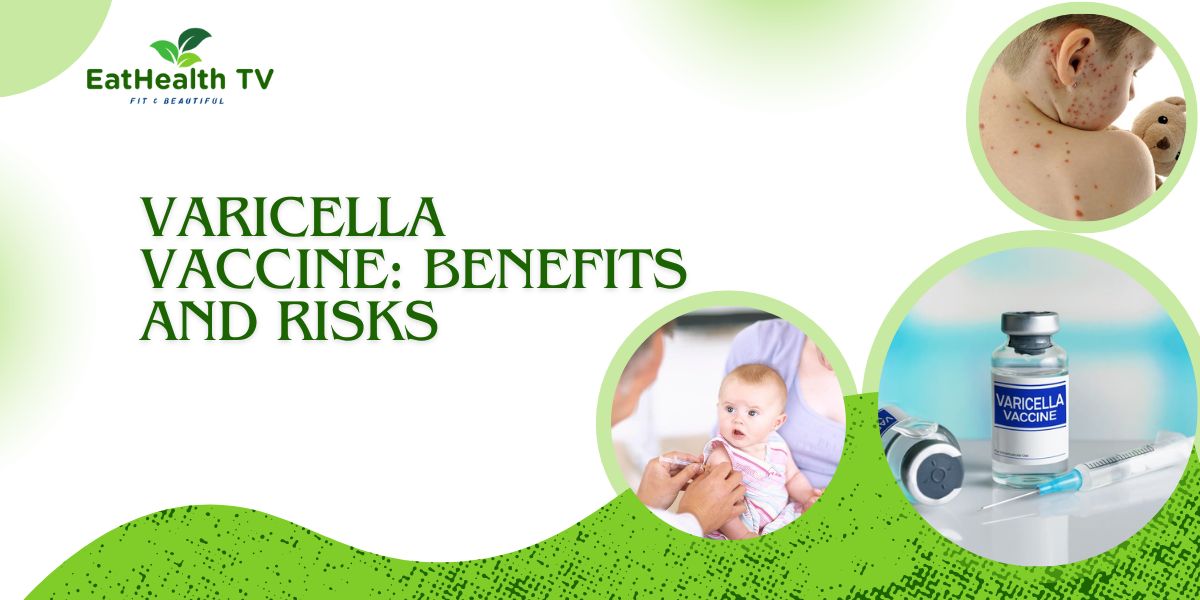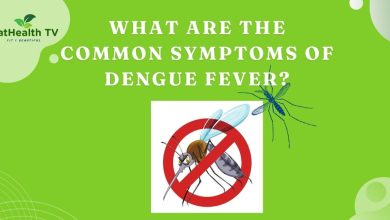Varicella Vaccine: Benefits and Risks
Addressing Vaccine Hesitancy: Overcoming Fears with Facts

Varicella Vaccine: Benefits and Risks
Vaccination has been a cornerstone of public health for decades, reducing and even eradicating many once-deadly diseases. One such vaccine that has significantly impacted public health is the varicella vaccine, commonly known as the chickenpox vaccine. This article will explore the benefits and risks associated with the varicella vaccine, providing a comprehensive understanding suitable for both high school students and healthcare professionals.
What is Varicella?
Varicella, commonly known as chickenpox, is a highly contagious disease caused by the varicella-zoster virus (VZV). It primarily affects children, but it can also infect adults who have not previously had the disease or been vaccinated against it. Symptoms include an itchy rash, fever, fatigue, and malaise. While chickenpox is often mild in children, it can lead to severe complications, especially in adults, pregnant women, and individuals with weakened immune systems.
The Varicella Vaccine: An Overview
The varicella vaccine was first introduced in the United States in 1995. It is a live attenuated vaccine, meaning it contains a weakened form of the virus that stimulates the immune system to build protection without causing the disease itself. The vaccine is typically administered in two doses: the first at 12-15 months of age and the second at 4-6 years of age.
Benefits of the Varicella Vaccine
1. Prevention of Chickenpox
The most direct benefit of the varicella vaccine is its effectiveness in preventing chickenpox. Studies have shown that the vaccine is about 85-90% effective in preventing varicella infection after one dose and 99% effective after two doses. This has led to a significant decline in chickenpox cases in countries with high vaccination coverage.
2. Reduction in Complications
Chickenpox can lead to serious complications, especially in high-risk groups. These complications include bacterial infections of the skin, pneumonia, encephalitis (inflammation of the brain), and even death. Vaccination reduces the risk of these complications by preventing the disease in the first place.
3. Herd Immunity
When a significant portion of the population is vaccinated, it reduces the overall amount of the virus circulating in the community, thereby providing indirect protection to those who cannot be vaccinated, such as newborns, pregnant women, or immunocompromised individuals. This concept is known as herd immunity and is crucial in controlling the spread of infectious diseases.
4. Economic Benefits
Preventing chickenpox through vaccination also has economic advantages. The cost associated with treating chickenpox and its complications, including hospitalizations, medications, and lost workdays for parents caring for sick children, is substantial. Widespread vaccination reduces these costs significantly.
5. Prevention of Shingles
The varicella-zoster virus can remain dormant in the body and reactivate later in life, causing shingles (herpes zoster), a painful condition characterized by a localized rash. Vaccination against chickenpox reduces the risk of developing shingles later in life, although a separate vaccine is also available specifically for shingles.
Risks and Side Effects of the Varicella Vaccine
While the benefits of the varicella vaccine are significant, it is also important to understand the potential risks and side effects associated with it.
1. Common Side Effects
Most side effects of the varicella vaccine are mild and temporary. These can include:
- Pain and Redness at Injection Site: This is the most common side effect, experienced by a majority of individuals.
- Mild Rash: Some individuals may develop a mild rash at the injection site or elsewhere on the body.
- Fever: A mild fever can occur following vaccination.
2. Moderate to Severe Side Effects
More severe side effects are rare but can occur. These include:
- Seizures: Some children may experience seizures, often related to fever (febrile seizures), after vaccination.
- Pneumonia: In very rare cases, the vaccine can cause pneumonia.
- Severe Allergic Reactions: Though extremely rare, severe allergic reactions (anaphylaxis) can occur. Symptoms may include difficulty breathing, swelling of the face and throat, and a rapid heartbeat.
3. Considerations for Immunocompromised Individuals
The varicella vaccine is a live attenuated vaccine, which means it contains a weakened form of the virus. While it is safe for the vast majority of people, it is not recommended for individuals with severely weakened immune systems, such as those undergoing chemotherapy or with advanced HIV/AIDS. In these cases, the vaccine could potentially cause a more serious infection.
4. Pregnancy Considerations
Pregnant women are advised against receiving the varicella vaccine due to potential risks to the fetus. Women are recommended to get vaccinated before becoming pregnant if they have not had chickenpox or the vaccine previously and to avoid becoming pregnant for at least one month after receiving the vaccine.
Addressing Vaccine Hesitancy
Despite the proven benefits, vaccine hesitancy remains a challenge. Some parents and individuals are concerned about the safety and necessity of vaccines, including the varicella vaccine. Addressing these concerns with accurate information is crucial. Just as we know Hepatitis B Vaccine: Benefits and Risks
1. Safety Record
The varicella vaccine has an excellent safety record. The vast majority of recipients experience no or only mild side effects. Serious side effects are exceedingly rare and are far outweighed by the benefits of vaccination.
2. Misconceptions About Natural Immunity
Some people believe that natural infection provides better immunity than vaccination. While natural infection does confer immunity, it comes with the risk of severe complications. Vaccination provides a safer way to achieve immunity without the risks associated with the disease.
3. Concerns About Vaccine Ingredients
Concerns about vaccine ingredients often contribute to vaccine hesitancy. The varicella vaccine, like all vaccines, contains ingredients that ensure its safety and effectiveness. These include stabilizers, preservatives, and adjuvants, all of which have been extensively tested and monitored for safety.
The Role of Healthcare Providers
Healthcare providers play a critical role in promoting vaccination and addressing vaccine hesitancy. They can:
- Provide Accurate Information: Clear, accurate, and evidence-based information helps dispel myths and misconceptions.
- Address Concerns Compassionately: Listening to and addressing individual concerns with empathy can help build trust and encourage vaccination.
- Highlight the Benefits: Emphasizing the benefits of vaccination, both for the individual and the community, can motivate people to choose vaccination.
Global Impact of the Varicella Vaccine
The introduction of the varicella vaccine has had a profound impact globally. Countries with high vaccination coverage have seen a dramatic decline in chickenpox cases and related complications. For example, in the United States, chickenpox cases have decreased by over 90% since the introduction of the vaccine.
1. Reduction in Mortality and Hospitalizations
In addition to reducing the number of cases, the varicella vaccine has significantly decreased mortality and hospitalizations related to chickenpox. This reduction is particularly notable among high-risk groups, such as infants, adults, and immunocompromised individuals.
2. Impact on Healthcare Systems
By preventing chickenpox and its complications, the varicella vaccine alleviates the burden on healthcare systems. Fewer hospitalizations and medical visits mean resources can be allocated to other pressing healthcare needs.
3. Global Vaccination Efforts
Efforts to increase global vaccination rates continue, particularly in low- and middle-income countries where access to vaccines may be limited. International organizations, governments, and non-profits work together to improve vaccine accessibility and coverage worldwide.
Future Directions and Research
Ongoing research aims to further improve the varicella vaccine and its implementation. Areas of focus include:
- Vaccine Efficacy: Research continues to monitor the long-term efficacy of the varicella vaccine and potential improvements.
- Combination Vaccines: Development of combination vaccines that include varicella and other vaccines, such as the MMRV (measles, mumps, rubella, and varicella) vaccine, aims to simplify vaccination schedules and improve compliance.
- Targeted Vaccination Strategies: Studies explore optimal vaccination strategies for different populations, such as booster doses for adolescents and adults.
Conclusion
The varicella vaccine represents a major advancement in public health, offering significant benefits in preventing chickenpox and its complications. While there are some risks associated with the vaccine, they are minimal compared to the benefits. Addressing vaccine hesitancy through accurate information and compassionate communication is essential to maintaining high vaccination rates and ensuring public health.
As we look to the future, continued research and global cooperation will be key to maximizing the impact of the varicella vaccine and protecting populations worldwide from the burden of chickenpox. Through these efforts, we can continue to move towards a healthier, more resilient world.




